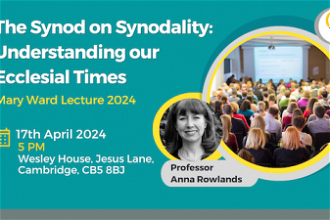Text: Epiphany homily by Fr Philip Endean SJ at Warwick Street
Fr Philip gave this homily at the Mass for LGBT Catholics, parents, families and friends, Our Lady of the Assumption & St Gregory, Warwick Street, on Sunday.
This year the Church takes its Sunday gospels from the evangelist Matthew. Matthew's Jesus provokes a crisis for the chosen people, the people of Israel. He is the promised Christ, the Messiah, the Holy One of God; he has come not to abolish the Law, but to bring it to fulfilment. Nevertheless he is rejected by his own, and dies under their curse. When he rises, he sends his disciples to a New Israel, beyond the geographical and cultural boundaries they know-no longer are they to proclaim the Kingdom to the house of Israel's lost sheep, but rather good news to the whole world.
The conflicts between the new and the old Israel remain unresolved-if reconciliation is possible, it exists only in hope. The business of the Kingdom has begun, and begun irrevocably; but it remains unfinished. Today the Church celebrates the liturgical feast of the Epiphany.
Whereas in the Masses of Christmas we have drawn on Luke and John, here we draw on Matthew. And Matthew's story of Jesus' birth foreshadows the drama of his gospel. This child is the fulfilment, the culmination of the Law: the gospel begins with an evocation of Jesus's descent from Abraham, lovingly and proudly evoked. Yet the order is counterpointed with occasional hints, associated with women, of something foreign, or something dodgy: Ruth the Moabites; Bathsheba, the wife of Uriah, with whom David had committed adultery, and finally Mary, who may be Joseph's wife, but of whom Jesus is born through the Holy Spirit, with at least a hint of illegitimacy.
Moral and racial purity are important, but other factors are at work as well. The pattern continues in Matthew's second chapter. Jesus is born in Bethlehem in Judaea as the prophet wrote; indeed he re-enacts the early history of the chosen people by travelling to Egypt and then being called back by the Lord.
But the birth is hidden from Herod, king of Judea-a Herod associated with just those chief priests and scribes who will eventually cause Jesus' death; instead it is revealed to wise travellers from the East. The consequences are violent; the innocents are massacred. Jesus, the fulfilment of God's promises, polarises those to whom he came; the conflicts remain unresolved; and for the moment, it is only the Gentiles who see the light.
Pagans-so proclaims the letter to the Ephesians-now share the same inheritance; they too have become part of Christ's body. And yet, just as the Magi are led back to their home avoiding Herod, so Christianity has developed in painful, indeed tragic, alienation from its Jewish roots. This feast of Epiphany and its scripture reminds us that the mystery of the Incarnation is not something static; it never simply reinforces cultural norms and traditions. It raises challenging questions about who does and does not belong; and it may be a sign of this community's health that its celebrations are often accompanied by the prayers of 'our friends outside' who believe it has no business to exist.
The challenges to growth which Jesus issues to the religion of God's chosen people don't stop when he founds the new Israel, the Church founded on the rock of Peter. They remain. Our community is faithful only if it remains open to the voice of God outside itself, constantly calling us all forward. This life-giving action of God's is always something shared, mutual, reciprocal; moreover, the forms it takes may be quite unexpected and subversive. We need to stand ready.
This liturgy of Epiphany is a joyful one. The wise men at Bethlehem fulfil Third Isaiah's prophecy, as he imagines new sons and daughters coming towards Jerusalem, and the Temple as a mother, its heart throbbing and full. But we must be prepared to put away the crib, and move beyond adoration of the baby's presence.
Like T. S. Eliot's Magus, we are drawn by the Christ child into a path of surrender and transformation; we must remain haunted by grace's subversive questions and paradoxes. Amid the old dispensations, amid those who, rather than surrender to the divine freedom, merely clutch at their gods, followers of Christ can never be at ease. We come together, we profess our faith, we joyfully celebrate a feast such as this-and it is good that we do so.
But the faith we profess remains essentially a matter of journeying, of following the star-a star which, in this life, will always remain ahead of us.


















